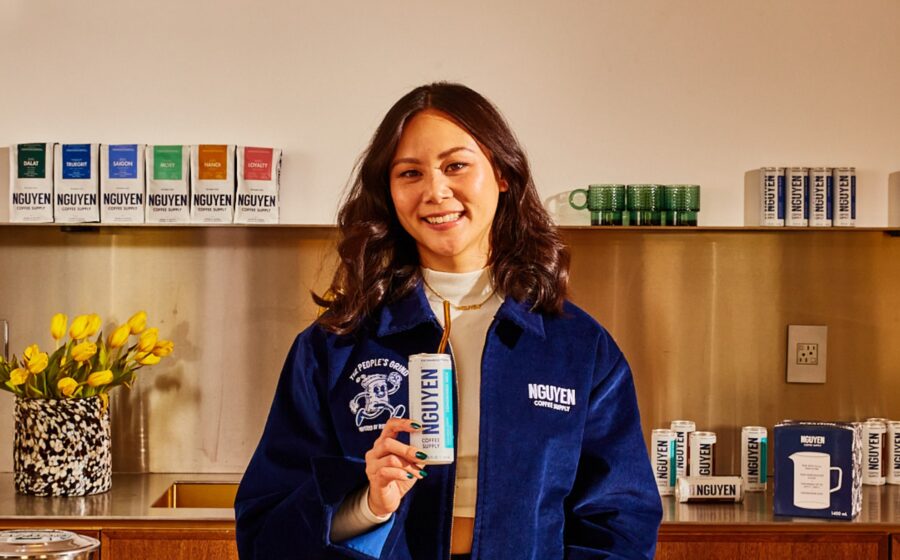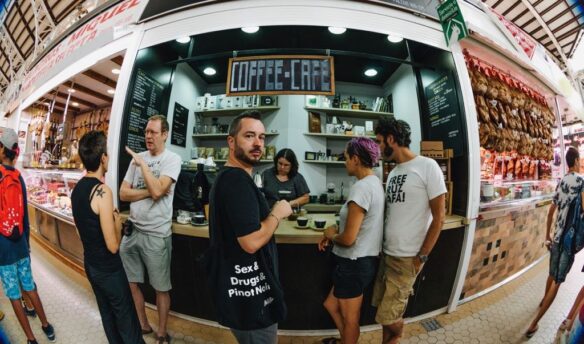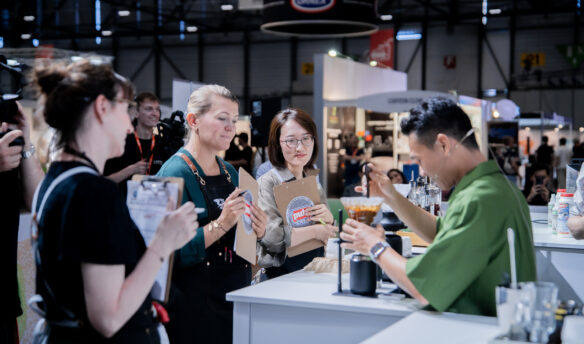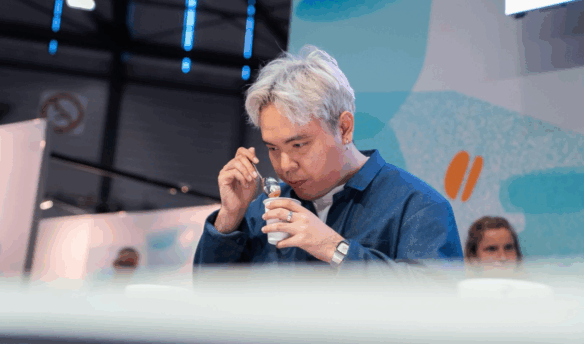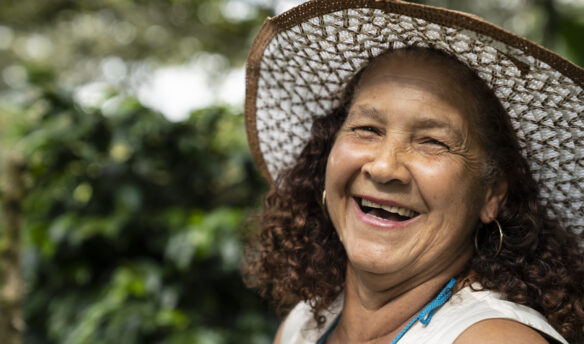“Award-winning documentary filmmaker” might not be a title many coffee professionals can add to their list of accomplishments. But for Sahra Nguyen, founder of the Brooklyn-based Nguyen Coffee Supply, making films was just a tiny part of a much larger passion for sharing the stories of other Asian Americans—and Nguyen Coffee Supply is an extension of that passion.
From her high school days as a member of the Coalition for Asian Pacific American Youth to her work on the NBC News documentary Deported, Nguyen has always looked for ways to tell stories from her community.
Growing up, coffee was a big part of her daily life, so when she discovered that most specialty shops didn’t carry beans from Vietnam despite having Vietnamese-style iced coffee on their menus, she knew she could use her storytelling skills and introduce Vietnamese-grown coffee to the world in a whole new way.
Most coffee in specialty shops is arabica, a species known for its sweeter, smoother taste. Conversely, robusta has not been as well-embraced and is sometimes considered bitter and too strong. Vietnam is the second-largest producer of coffee and the largest of robusta specifically, so Nguyen knew that to champion Vietnamese-grown coffee, she’d have to break down these perceptions.
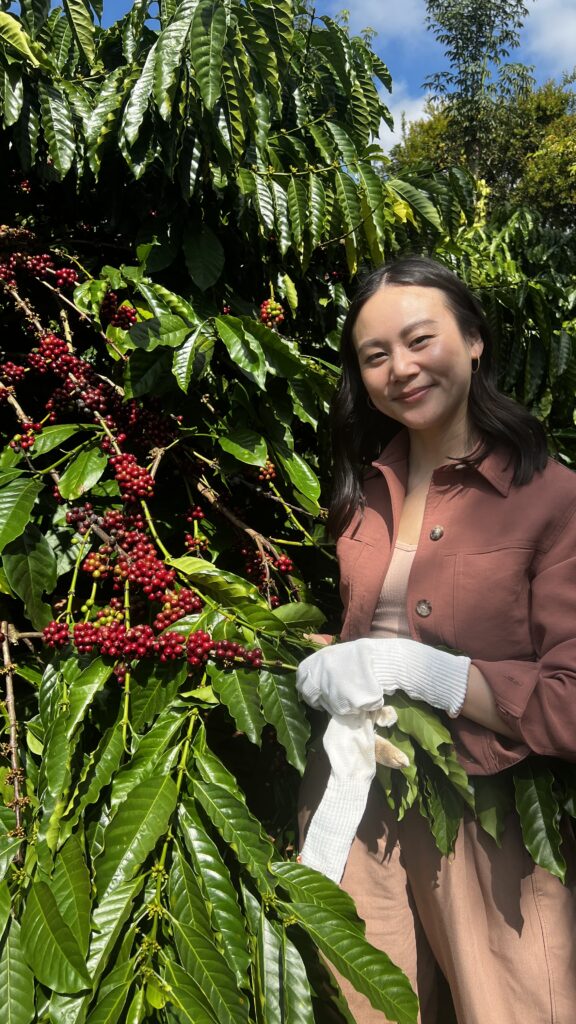
In 2016, Nguyen was introduced to Thien Ton, a fourth-generation coffee farmer. Two years later, the coffee grown on his farm would be in the first bags of coffee from Nguyen Coffee Supply.
Now, Nguyen Coffee Supply is everywhere. What started as an idea on a farm in Vietnam extends far beyond Nguyen’s roastery in Brooklyn, and you can find Nguyen Coffee Supply bags and ready-to-drink beverages on the shelves at Whole Foods. From those first conversations with Ton to distributing her coffee nationwide, Nguyen has constantly pushed forward Vietnamese coffee and a species of bean that has often been ignored.
The journey of Nguyen Coffee Supply began when you met Thien Ton. Can you talk more about him and how your relationship has grown since 2016?
We’ve grown together a lot, and we’ve learned from each other a lot. I just saw him in January. We see each other at least once a year. About two years ago, he bought a second farm. The partnership is really beautiful. You can just tell he’s passionate about coffee.
Before we worked with him, he had never exported to the US. We’re his first partner. Since we bought our very first container in 2018, the cost of our robusta has increased 275%. I kept asking him to do more things, like hand-picking cherries when they were ripe, instead of grabbing all the cherries at the same time. We really pushed for hand-picking cherries when they’re ripe. We’ve pushed the post-harvesting and processing methods, and now he does another layer of hand-sorting the beans.
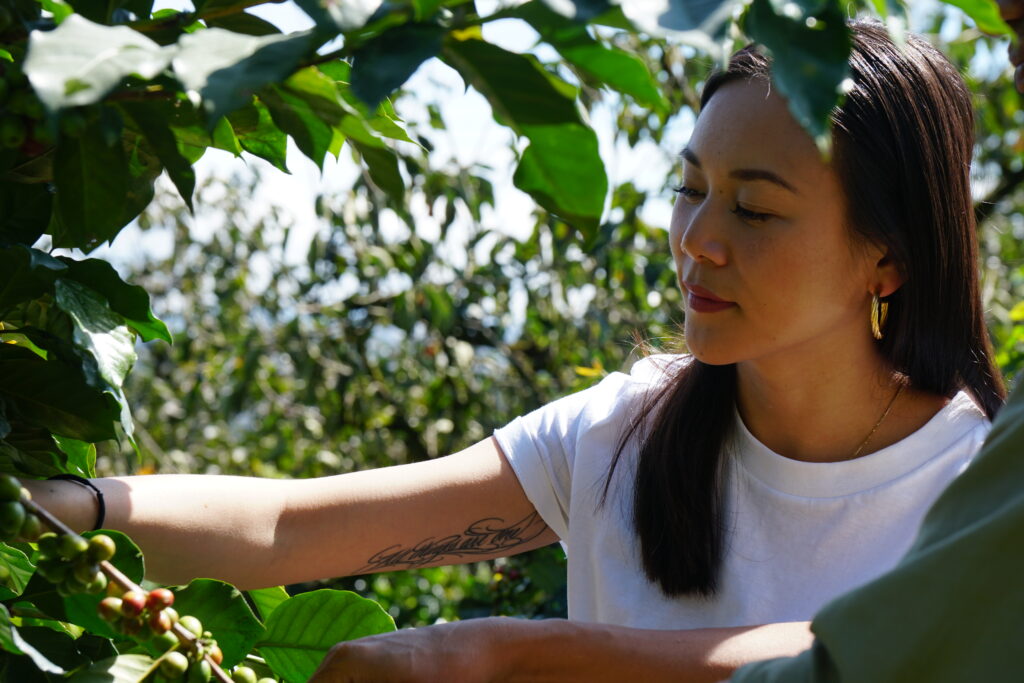
It’s all these steps that have changed over time. It’s the collaboration, it’s the patience … this is the real long-term work that needs to happen. It’s taken five-plus years, but this is how we change the industry—not just by talking lip service, but actually putting in the work.
How did you start your coffee business?
Entering coffee was a really big learning curve for me because I didn’t have any knowledge of the industry. Even as a consumer, as someone who loves coffee, I couldn’t tell you how many grams to weigh and how many grams of water to add for a pour over. In a lot of ways, I felt really intimidated entering the space because I knew I wasn’t a coffee expert. But I wanted to learn because I wanted to enter the space properly. So, there was a lot of self-education.
First, I had to learn the green side of coffee growing, harvesting, and post-harvest processing by talking to our producer. Then, I researched how coffee is grown. There are different tiers of coffee, from conventional to premium to specialty. I’ve had to learn about all these things. Then I started sourcing, so it’s asking a lot of questions at origin and learning as you go.
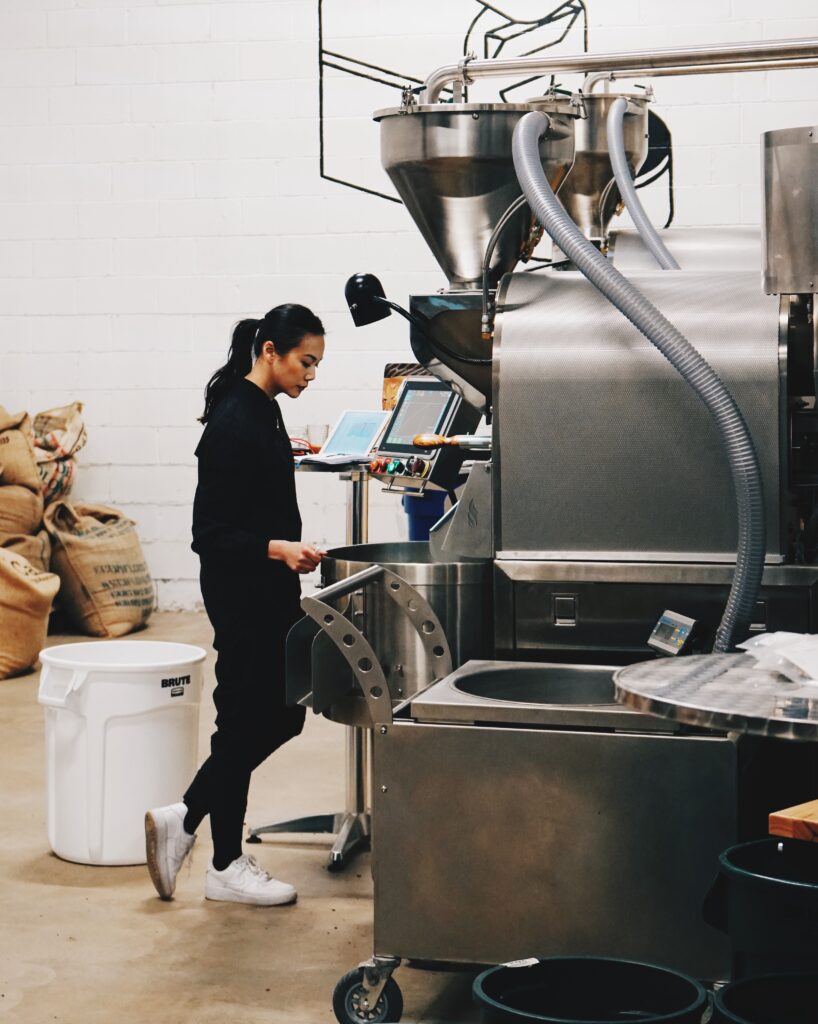
On the roasting side, I was fortunate to have found a place in Brooklyn that had a shared roasting facility. In order to use the facility, you had to rent time on their Probat roaster. You had to take a training course to become a member and rent the roasting machine. So, I took their four-week roasting course, and that was my first education in the roasting and development process. Then, I just continued to develop my skills through roasting.
How did you feel when you first started roasting?
I felt intimidated because, one, I’m a woman; two, I’m a woman of color; and three, I don’t have a background in roasting or coffee.
At that time, around 2017/2018, coffee was still very much entrenched in a kind of elitism: either you’re a coffee master, or you’re not. On top of that, I wanted to roast Vietnamese coffee. When our very first pallet of green coffee arrived, I remember the facility manager and even one of the roasters were like, “We’ve never even had a robusta in this warehouse.”
Some people were really nice and supportive. Some were polite, but you could tell they were raising an eyebrow at me. And some were just straight up rude. One person said to me, “Oh, robusta tastes like my grandma’s socks.” I remember thinking that comment was so odd, like, “You know what your grandma’s socks taste like?” Some people were so fixated on that narrative.
Every week, I would go in there and just do my thing. I felt totally intimidated, but I just kept going.
Nguyen Coffee Supply has grown significantly in the past couple of years due to your ready-to-drink options. What made you decide to pivot in that direction?
There was a distinct moment in late 2021 and early 2022 when we noticed we had a high percentage of five-star reviews on our website for the beans—like 90% out of thousands of reviews. So, we wanted to understand what was resonating with our customers. We exported all of our customer reviews and did a keyword analysis. The number one most popular word in our reviews was flavor.
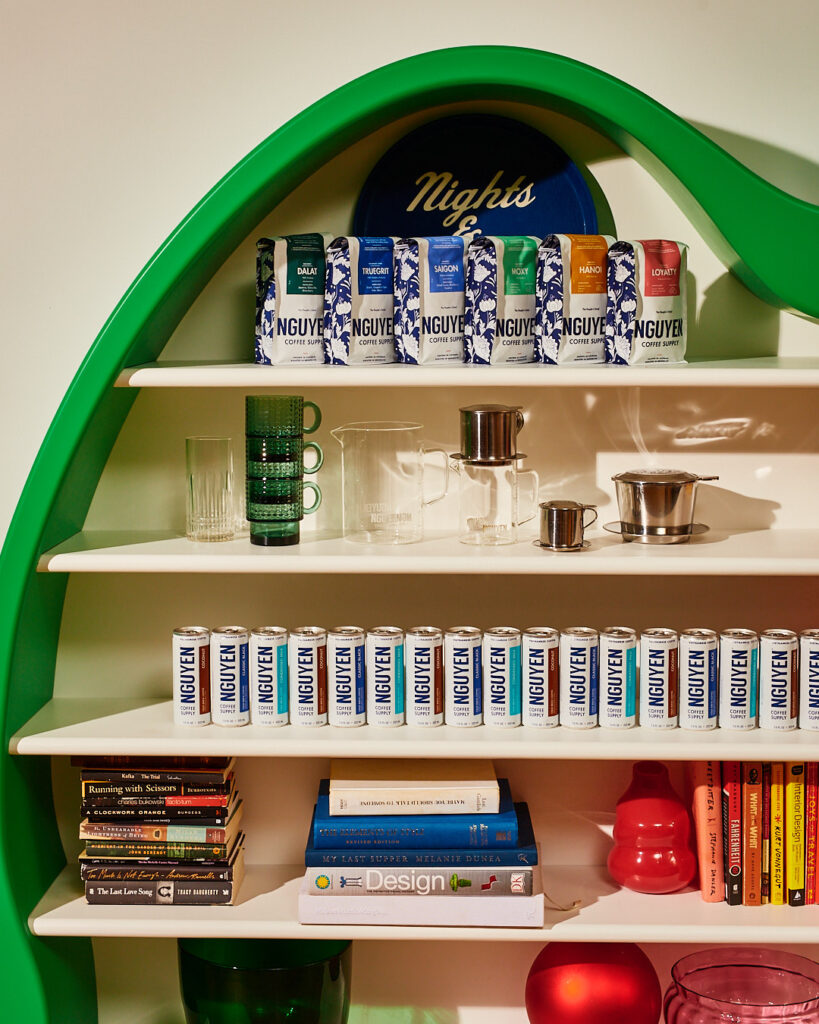
People love the flavor of our coffee because it’s so different from arabica, and I realized we needed to get people to experience the flavor quicker. So I ran through a few ideas, but RTDs (ready-to-drink) beverages really stood out to me because they were liquid to lips—a low barrier to access. Ultimately, it’s the flavor. Once people can taste it, they can expand their perception of the robusta experience.
I was definitely nervous because RTDs are a very, very tough industry. But it just felt like the right strategy for us at that moment in time. We launched our first RTD beverage in late 2022, and two other SKUs have launched since then. All three landed at Whole Foods in January 2023.
How have you seen your business grow between selling beans and RTD beverages?
They thrive in different channels. Our beans thrive on our website, whereas RTDs have blazed a trail in wholesale distribution. I think this speaks to the categories consumers are interested in, which is a more accessible product to engage with.
The bag requires a very specific consumer who’s willing to go home and grind the beans and make the coffee. So, they serve different channels, and each product category dominates its own channel, but as of today, it’s pretty balanced.
However, depending on how our retail strategy evolves, I could see RTDs outweighing the beans in the near future. But in the long term, I don’t necessarily imagine RTDs being the lion’s share of our business. I think they’re going to be a significant part of the business to drive sales and get awareness, but our roasted coffee will still be a big part of that.
Have you seen the discourse and attitudes toward robusta coffee change?
I would say the conversation has definitely changed. It’s really exciting to see—I feel like we’ve absolutely reached a turning point where every time we go to SCA Expo or CoffeeFest, there’s a widespread embrace of robusta.
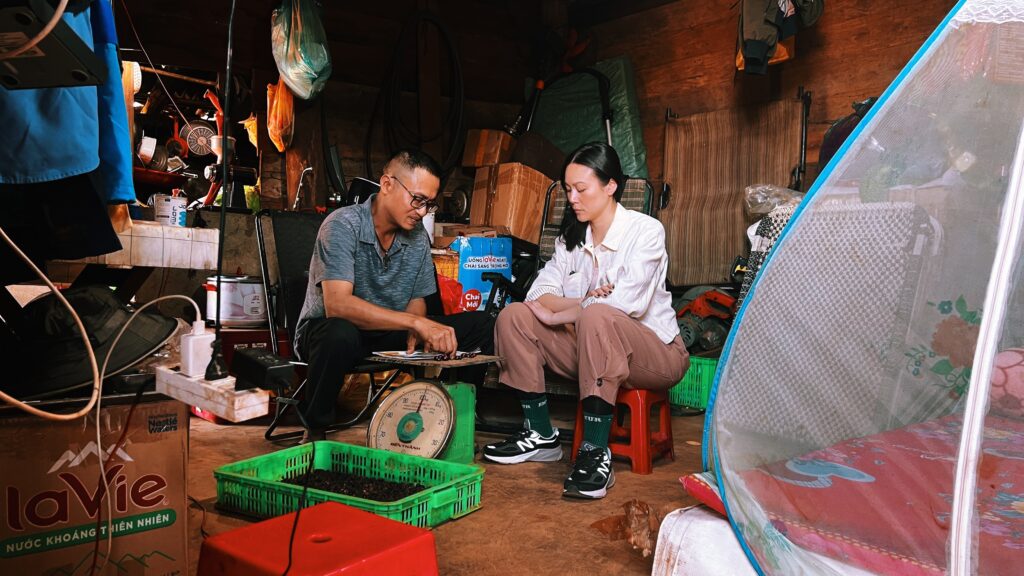
There is real excitement right now in the industry around robusta. And I’m like, “Let’s have a conversation! Where do we begin? How are we evolving and expanding this experience? How will we work with producers? How are we elevating robusta?” It’s happening everywhere, which is so exciting.
I’m proud of our work and for being very vocal in the beginning. Robusta is not a small coffee species—it’s nearly 50% of all coffee production. I am proud that we have spent a lot of time, money, energy, and resources changing the narrative. You see us on social media, you see us in PR—it all costs time and money. But we do that because we are adamant about challenging the narrative to help shift minds, which helps shift systems.
We chose to take a really hard path. And I want to believe that we’ve contributed to a lot of the changes we’ve seen happen.
But folks have been innovating on robusta for decades, either at origin or through research. Our role has been to connect that work and shift the mainstream narrative and perception of robusta. So it takes a village.



